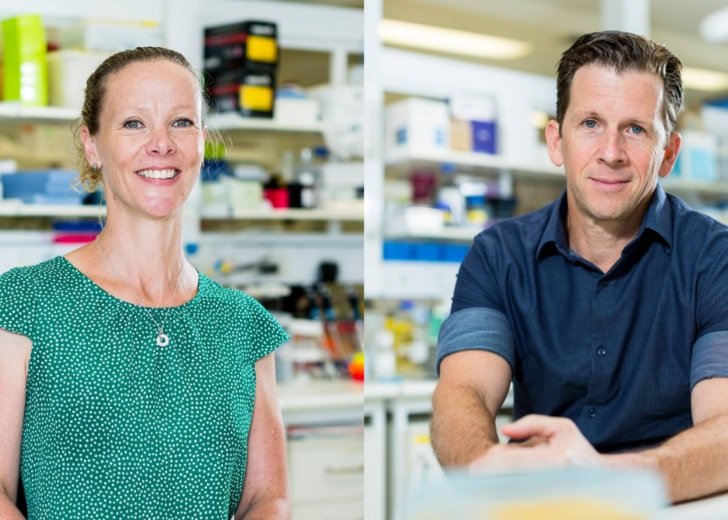
Working towards this goal has led to a 12-year research partnership, forming what they call a neuroregeneration – or brain repair – ‘super-lab’ bringing together their individual laboratories to conduct research in tandem.
“It’s an advantageous model where one arm focuses on using stem cells as a framework to understand certain events in the brain, while the other arm investigates stem cell therapies and approaches,” said Prof Parish, Head of the Stem Cell and Neural Development Laboratory.
The duo say that this multi-faceted approach has benefited their research in a number of ways.
“On a practical level, we both bring different technologies and skillsets to projects, while intellectually we think differently about how to tackle challenges and solve problems,” said Prof Thompson, Head of the Neurogenesis and Neural Transplantation Laboratory.
Their partnership has also fostered a dynamic and diverse environment for the students and Postdoctoral researchers in their labs.
“Although we run individual laboratories, many of our activities are conducted jointly. This provides greater opportunities for our teams to share ideas and collaborate on different projects given there are more people to engage with,” said Prof Thompson.
Their unique merged lab model has enabled research to flourish with the duo currently investigating a stem cell therapy for Parkinson’s disease with the aim of moving to clinical trials within a few years.
“By looking at how stem cell therapies could promote plasticity, replace cell types and protect or promote events in the brain, we hope to stop or reverse disease progression,” said Prof Parish.
“We are very close to achieving our goals and I don’t think that would be the case had we not worked together. There is far more to be gained in the long run by working collaboratively,” said Prof Thompson.
“Our partnership works because we both have a similar work ethic and a shared goal. We want to know that at the end of our careers we’ve made a difference to understanding human health or treating a disease,” said Prof Parish.
Recent research breakthroughs
2020: First-of-its-kind research published in Cell Stem Cell establishes preclinical evidence that a novel stem cell transplant technique involving viral delivery of growth promoting proteins can repair motor function in animals with Parkinson’s Disease.
2021: Research published in Nature Communications demonstrates that use of a “kill-switch” stem cell line after graft transplantation can remove risky and unwanted cell populations to improve safety.
2021: A highly novel hydrogel which acts as a gateway to facilitate the safe transfer of stem cells into the brain and restore damaged tissue is developed. The research was published in Advanced Functional Materials.
2022: A proof-of-principle study published in Cell Stem Cell successfully reconstructs long-distance brain connections previously damaged in the Parkinson’s brain.